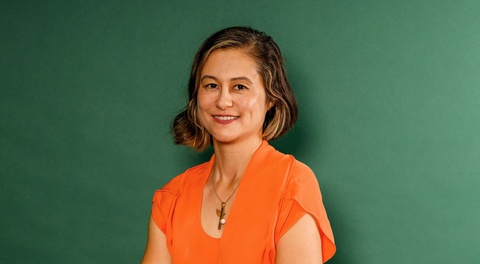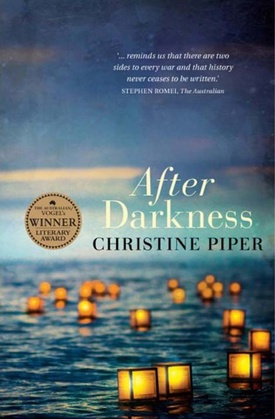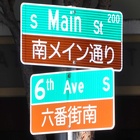The novel "After Darkness: A Japanese Doctor at Loveday Camp, Australia" (originally published in 2014) is set in Japan and Australia, and depicts the inner conflict and way of life of Ibaraki Tomokazu, a graduate of the Imperial University School of Medicine who became mentally ill due to inhumane research for the military. The novel was published in Japan in the summer of 2023. I introduced this book in my previous column , but I asked the author, Christine Piper, who has roots in both Japan and Australia, about the background to the creation of the book and about Australia and Japanese people.
* * * * *
Interested in Japanese immigrants in Australia?
What prompted you to write After Dark? Why did you choose this subject? And why did you choose to write it as fiction instead of non-fiction?
Christine Piper (CP): I've wanted to write novels since I was a teenager. I've always loved reading (most of the books I read were novels) and I enjoyed writing as a student, so writing novels was always a dream of mine.
I'd worked as a magazine journalist for ten years (and still do), but it wasn't satisfying my creative drive, so I decided to force myself to write fiction and enrolled in a PhD in Creative Arts, hoping to use the research framework and support I would get in an academic environment to force myself to write a novel.
I actually wrote After Dark for this degree. The novel made up about 70% of my final thesis. The other 30% was the theory paper. Right after I finished the novel, I won the Vogel Prize for Literature for writers under 35, and the novel was published pretty quickly.
As for why I chose the subject matter in After Dark, first of all, my mother is Japanese, so I was interested in the history of Japanese immigration in Australia. Initially, I wanted to focus on the pearl divers interned in Broome during World War II. My supervisor told me that my PhD had to be original research. There had already been a few novels published about the pearl divers in Broome, but no one had written a novel about the internment of Japanese people in Australia (at the time). So he suggested that I take up that topic.
--Why did you choose Dr. Ibaraki, who is involved in the development of biological weapons, as the protagonist? What message did you want to convey through him?
CP: Most people are surprised to learn that I didn't originally set out to write about Unit 731. The idea came later.
Novelists often say that the story finds them, and in this respect the character Ibaraki found me. For months I had been struggling to write the opening to my novel, trying several versions but none of them worked.
But one day, out of nowhere, I heard a voice in my head. It was the voice of an old Japanese man looking back on his life, full of regret. He appeared in my head almost fully formed. I quickly decided that he was a Japanese doctor working at the Japanese Hospital in Broome, who was interned in an internment camp in Australia after the attack on Pearl Harbor.
But what remained a mystery to me was the source of his regret - was it the death of his wife or the death of his child - but I felt his trauma was much greater than that.
About two-thirds of the way through the first draft of After Dark, I remembered reading about Japanese wartime human experiments. I looked online and found the name of the program: Unit 731. The first article I found was about a cache of bones that had been unearthed at a construction site in Shinjuku in 1989. The bones were thought to be linked to a supposedly secret Unit 731 laboratory in Tokyo. I realized that this period might have something to do with Dr. Ibaraki's life. He may have been at that laboratory in Tokyo in the 1930s before moving to Australia to work for Broome.
As for what I wanted to convey through Dr. Ibaraki, I wanted to create a character that embodied as many contradictions as possible: someone who is selfless and dedicated to helping others, but at the same time, does very bad things morally. I was attracted to the idea of a fundamentally good person like Dr. Ibaraki being prompted to do evil acts that go against his conscience. I wanted to show that everyone is capable of good and evil. There is only a thin wall that separates the good and evil that govern our actions.
I spent a lot of time in the first draft trying to figure out what the central theme of the novel was, and I realised it all revolved around silence: the unspoken attraction between Sister Bernice and Dr Ibaraki, and the silence of the Mixed Race and Australian-Japanese people held in the camps. Ultimately, After Dark is about facing past trauma and finding the courage to speak out.
Continued >>
© 2023 Ryusuke Kawai








